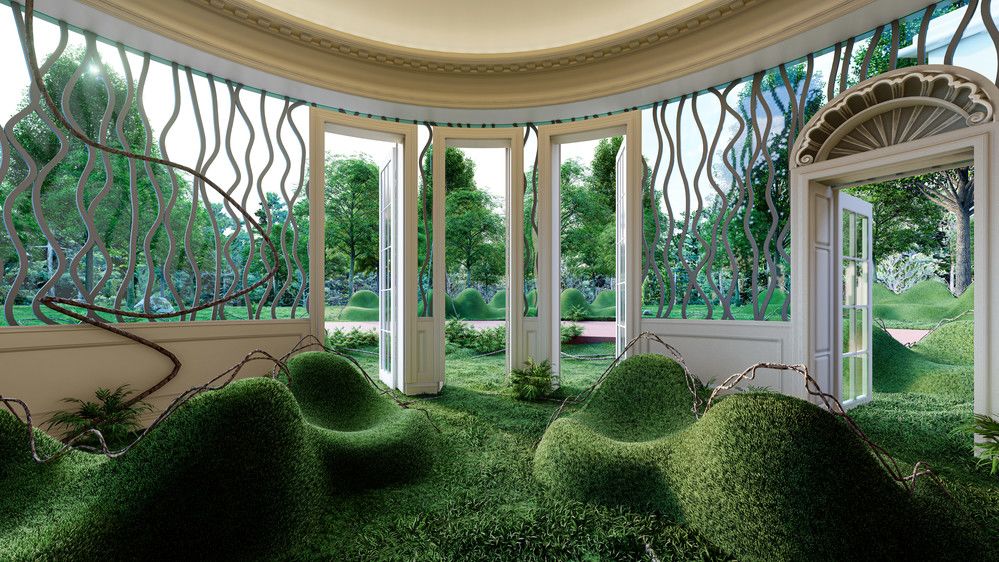
10 ways in which we're tackling climate issues through Knowledge Exchange and Research

- Written byAnnika Loebig
- Published date 08 February 2022

At University of the Arts London (UAL), we recognise the potential of the arts to mobilise against the Climate Emergency. To contribute to the challenge of securing a sustainable future for everyone, we’re championing our climate justice commitments across all our operations — including our goal to reach net zero by 2040 and embedding social and environmental sustainability into the curriculum.
Research and Knowledge Exchange (KE) also play a key role in our mission to fight for a more sustainable world. Here’s a round-up of 10 projects illustrating how we're using the power of creativity and innovative thinking to address some of the most pressing challenges relating to the present and future of our planet.

Plastic Justice
UAL has joined a consortium of European art and design universities for Plastic Justice, an Erasmus+ Strategic Partnership looking to raise awareness about the harms of plastic pollution combining creative and scientific disciplines. In collaboration with environmental NGOs and scientists who investigate the long-term impact of invisible micro-plastics on the human body, Plastic Justice aims to create new knowledge around sustainable design practices for the next generations of creatives.
The researchers involved will develop an educational programme launched through a joint conference, an exhibition and an online repository developed by all partner institutions.
Find out more about Plastic Justice.
Fashion SEEDS
A European network of fashion universities including University of the Arts London, Politecnico di Milano, Estonian Academy of the Arts and Design School Kolding, have been working together to co-develop Fashion SEEDS — an open online platform to help fashion educators exploring, teaching and learning sustainability practices in fashion design.
Managed under the leadership of Professor Dilys Williams, Director of UAL 's Centre for Sustainable Fashion, FashionSEEDS collates the insights from the researchers involved on how to counteract the societal and environmental impact of the fashion industry through academic curriculum.
Bio-Inspired Textiles
How can nature teach us about designing more sustainable textiles? By combining biology, materials science and textiles design principles, Bio-Inspired Textiles brings together students, practitioners and industry partners to explore how 7 biological structural design elements found in nature can help us come up with bio-informed textiles to advance current sustainability practices.
Read all about this innovative initiative.

FishSkin
Inspired by the practices of indigenous people in Northern Europe and Asia, FishSkin aims to take advantage of the momentum of the fashion circularity movement by bringing back fish leather as a potentially ecological raw fashion material.
The project uses secondments and network training events to form new, collective, inter-disciplinary knowledge that tap into the expertise of Marine Culture and Fashion industries. This resource is then used by academic and industry experts to develop techniques and methodologies which would enable the take-up of fish leather at an industrial scale.
Future Observatory
In the face of climate change and the rise of artificial intelligence, London's Design Museum teamed up with the Arts and Humanity Research Council to launch Future Observatory: a national programme bringing together researchers, designers and industry representatives to explore how the power of design research can help us build resilience and prepare for the challenges ahead. UAL is leading 3 of the funded initiatives, collaborating with local communities, councils and changemakers to achieve Britain’s environmental goals.
Find out more about Future Observatory.
ASOS Circularity Partnership
Fashion retailer ASOS teamed up with Centre for Sustainable Fashion (CSF) to train their designers on circularity through a bespoke educational programme, followed by the launch of a 29-piece collection based on circular principles and Ellen MacArthur Foundation’s vision for a circular fashion economy. To secure a long-term impact of their partnership, they also collaborated on developing a design guidebook to inform all operations of ASOS’ product teams going forward.
Read about the partnership between CSF and ASOS.

PharmaFactory
Academic partners and 5 SMEs across Europe came together to form PharmaFactory, a 4-year interdisciplinary project led by London College of Communication’s award-winning educator Dr. Alison Prendiville, exploring how Plant Molecular Farming (PMF) can manufacture plant-based products for medical and veterinary use.
The project has developed 6 molecular farming plants and hosted 3 workshops and events between September 2018 and February 2020. As part of the work developed for PharmaFactory, the partners involved also advocated for the public acceptance of these products through a series of public engagement activities.
Fashion Values
UAL's Centre for Sustainable Fashion developed Fashion Values, an innovative sustainability education programme, in partnership with Kering, IBM and Vogue Business. Collaborating directly with leading figures in design, technology, media and academia, the aim is to stimulate sustainable innovation and to increase sustainability literacy amongst the next generation of designers. This includes short-form 30-minute learning resources, media content covering perspectives across the fashion industry and a portfolio of open-source online courses.
Maison/0
Maison/0 formalises the long-standing partnership between the luxury group LVMH and Central Saint Martins. This new initiative advocates for regenerative luxury practices by offering scholarships to creative talent and developing a sustainable innovation programme. By educating emerging designers about climate and biodiversity, they hope to empower them to disrupt contemporary practices in education, academia and design.
Find out more about this exciting partnership between CSM and LVMH.
Fashion, Textiles and Technology Institute
UAL’s Fashion, Textiles and Technology Institute (FTTI) lies at the intersection of STEM, cultural anthropology, business practices and design. With the help of research centres, industry partners and leading academics, FTTI explores solutions to the current challenges facing the fashion industry by focusing on environmental, social and financial sustainability, circular materials and alternative manufacturing processes, while harnessing the power of digital technologies.
FTTI recently partnered with the British Council to offer 5 collaborative grants to international SMEs reshaping the relationship between the fashion, textiles and technology industry and its environmental and social responsibilities.
Find out more about Research and Knowledge Exchange at UAL
Read about Research Season and explore the events programme for 2022